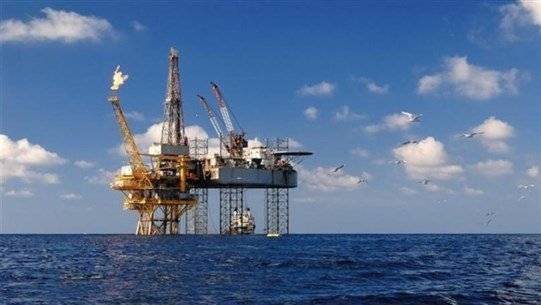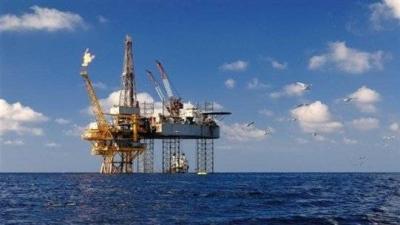As the maritime border demarcation file between Lebanon and Israel comes to be considered accomplished, and as the French company "Total" approaches signing contracts with Lebanon to begin drilling and exploration operations for oil and gas in the "Qana" field, attention shifts to the proposed "independent sovereign fund." This fund would be responsible for managing oil and gas revenues and determining spending priorities. The positives and negatives of this fund are perceived as equal due to the ambiguity surrounding its formation criteria and the appointment of its members, raising concerns about whether the criteria will mirror those used by political authority figures engaged in quota-based allocations and clientele networks, potentially allowing them to seize control of the oil wealth funds in the future.
The Lebanese political components do not appear to be in a hurry to establish this fund soon, given that oil and gas extraction is not expected to commence for at least three years and before a new authority is formed following the election of a president. The head of the Parliamentary Committee on Public Works and Energy, MP Saji Addaieh, acknowledged that this fund "poses a significant challenge for the parliament and political authority in terms of defining the fund's mission and operational mechanisms." In a statement to "Asharq Al-Awsat," he announced that he had invited the regulatory body for the oil sector to meet in parliament the following day to discuss its operational nature. He said, "We will try to benefit from Arab and foreign countries that have extensive experience in managing oil issues, tracing the mechanisms used in the formation of this fund and how its members are selected, and we will work to transfer international experiences to Lebanon."
Many agree that the anticipated signature on the demarcation file at the end of this month at the headquarters of the UN peacekeeping forces "UNIFIL" in Naqoura will usher Lebanon into a new political phase that lays the groundwork for a protracted period of calm and stability. However, the economic outcomes remain uncertain due to the lack of a clear vision on how to profit from the natural resources. MP Saji Addaieh emphasized the importance of "enacting legislation that organizes oil and gas exploration and extraction operations, preventing Lebanese companies from operating under the guise of foreign companies. There are genuine concerns about the introduction of deals and brokerage, as well as understanding to whom the gas will be sold and how the facilities that liquefy the gas will be built for subsequent export." He added, "We will not overlook the issue of approving transparency laws, and we may request the establishment of a special ministry for oil, as the conduct of officials necessitates that we do not place our trust in them to manage this file," indicating the necessity of appointing members of the fund from Lebanese and foreign academics and experts recognized for their competence and integrity.
Despite ongoing discussions about establishing the fund for years, there is concern about the absence of regulations that govern its work and role, whether it will operate under the authority of the Central Bank of Lebanon, the Ministry of Finance, or have its own financial management to determine how its members are chosen, how resources are utilized, and what regulatory frameworks it adheres to, along with its independence from political decisions. Dr. Paul Marqus, head of the "Justicia" rights organization, views "the sovereign wealth fund as a collection of funds owned by the state which are invested in various financial assets." He adds, "When a state has a surplus in its budget, it utilizes the sovereign wealth fund as a means to direct it toward investments instead of keeping it in the central bank; the first sovereign wealth fund was the Kuwait Investment Authority, established in 1953 to invest surplus oil revenues." Dr. Marqus confirmed in a statement to "Asharq Al-Awsat" that "the motivations for creating a sovereign wealth fund vary from country to country. For example, the United Arab Emirates generates a large portion of its revenue from oil exports and needs a means to protect surplus reserves from existing oil-related risks, hence it allocates part of this money to a sovereign wealth fund... Returning to Lebanon, Law No. 132/2010 (The Law on Petroleum Resources in Marine Waters) stipulated the creation of a sovereign fund under special legislation where revenues collected by the state from petroleum activities or rights are deposited, making it the first instance of adopting the sovereign wealth fund principle in Lebanon, which was included in the Petroleum Resources Law approved by the Parliament in 2010 and worked on by the Ministry of Energy at the time. Justice had raised observations on it, many of which were not taken into consideration."
The Petroleum Resources Law defines the sovereign fund's system and its own management system, as well as the direction for investing and utilizing revenues under special legislation. Dr. Marqus emphasizes the importance of "adopting clear and transparent principles for investment and utilization, through which the state retains capital and part of its revenue as an investment fund for future generations, while the other part is spent according to criteria that ensure the state's rights on one hand and protect the economy from any potential negative impacts in the short and long term." He continues, "The principle established by this law stipulates that oil revenues in the sovereign wealth fund should not be consumed by one generation of Lebanese and aims to transform oil wealth into a renewable financial asset to be preserved for the benefit of all current and future Lebanese generations." He calls for "converting petroleum revenues and natural resources into financial assets, investing them to generate long-term sources of government income for future generations." He believes that "these oil revenues can cover budget shortfalls resulting from unexpected declines in global oil or mineral prices."
The significance of this fund lies in the wealth it manages and the necessity of preserving it for the benefit of the country. In this context, the head of the "Justicia" Foundation affirms that "the higher responsibility in this regard remains with the state; because the success of this fund depends on its being managed by experts and independent individuals according to clear and transparent standards away from political interference and favoritism, with the Council of Ministers serving as the direct reference for overseeing its operations from various strategic, investment, and regulatory aspects."




